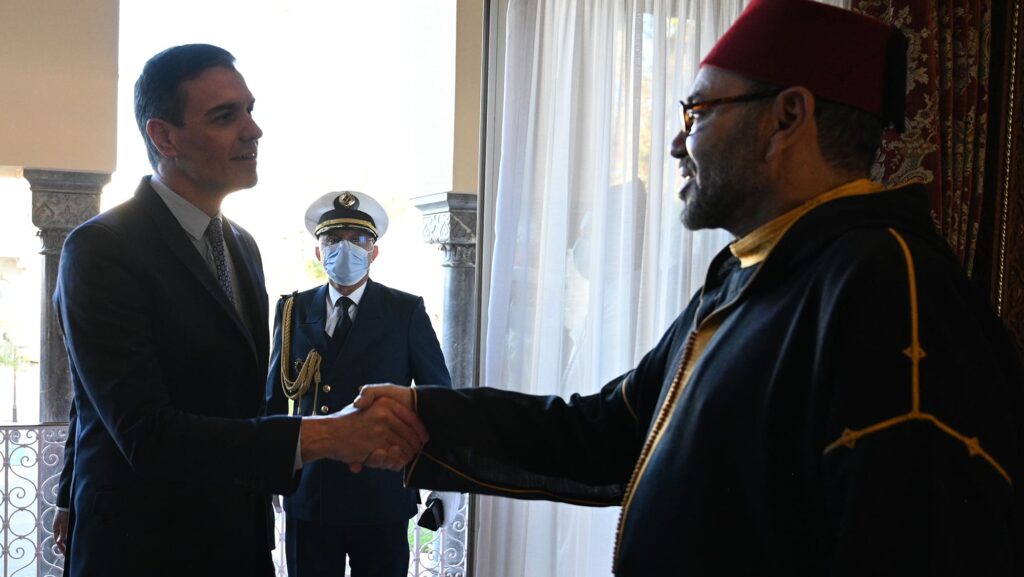
Pedro Sánchez meeting with Morrocan King Mohamed VI, 2022
Photo: Ministry of the Presidency. Government of Spain (Attribution or Attribution), via Wikimedia Commons
The government of Spain has recently approved a loan of up to €250 million to construct and maintain a large desalination plant in North Africa to be built in Morocco, southwest of Casablanca. On June 17, 2024, COFIDES (Compañía Española de Financiación del Desarrollo) and CaixaBank announced their support for the project, bringing the total investment to €650 million.
Miguel Ángel Ladero, Corporate Director of Investments at COFIDES, emphasized that this will be the largest desalination plant in Africa. Cristina García, Director of Project Finance for Infrastructure at CaixaBank’s Corporate & Investment Banking (CIB) noted that 60% of the 800 Spanish companies operating in Morocco are clients of CaixaBank’s Moroccan branch.
The government loan will go to a consortium, including the Spanish firm Acciona, and is part of Spain’s ‘Horizonte África’ strategy. The Spanish government has funded other hydraulic projects in Morocco as well, including two desalination plants and two water treatment plants in Zag and Moulay Brahim, financed with loans of up to €5 million each.
A priori, the move may seem justified. Africa, after all, needs to be helped along the path of economic development if migration into Europe is to be reduced. Indeed, I’ve written favourably about the promise of Giorgia Meloni’s “Mattei Plan” for Africa.
However, Spain’s investment occurs in an inauspicious context.
In recent years, the country has consistently surrendered its geopolitical interests in the region to Morocco, and was recently outpaced by its southern neighbour in agricultural exports to the EU. In 2023, Morocco exported 491.91 million kilograms of tomatoes into Europe, compared to Spain’s 462.66 million kilograms. In addition, Spain suffers from regular drought, and would certainly benefit from the desalination plant itself.
Importantly, Morocco also claims the Spanish territories of Ceuta and Melilla for itself, and is building up its military capacities.
Investments of this sort may be interpreted as part of a general trajectory, where much of the international community, including the U.S., is generally supportive of Moroccan sovereignty claims (over the Western Sahara), propping up its access to resources (including rare earth minerals off the Western Sahara’s Atlantic coast) and military development.
The reason for this may have to do with a desire not to have a single country like Spain exert excessive influence over the Western entry into the Mediterranean and its resources (the purpose of the British colony of Gibraltar) as well as to maintain the European balance of power, which would be upset if Spain grew excessively.
Spain, for its part, would appear to be complicit in its own impoverishment and the strengthening of a rival.
True to form, such geopolitical power plays are always advanced in terms of the ideological superstructure of globalism, namely the U.N.’s SDGs and its equivalents.
COFIDES justified the desalination plant in terms of the U.N.’s Sustainable Development Goals 6 (“Clean Water and Sanitation”). U.N. SDGs are the international equivalent of the increasingly prominent EU Taxonomy for Sustainable Activities and the private sector’s ESG criteria. We may understand these kinds of investment guides as the plausible “cover” given to the international system’s attempts to dictate a division of labour among states, as well as transferring wealth to certain emerging economic entities as part of what Karl Schwab has called the Fourth Industrial Revolution.
